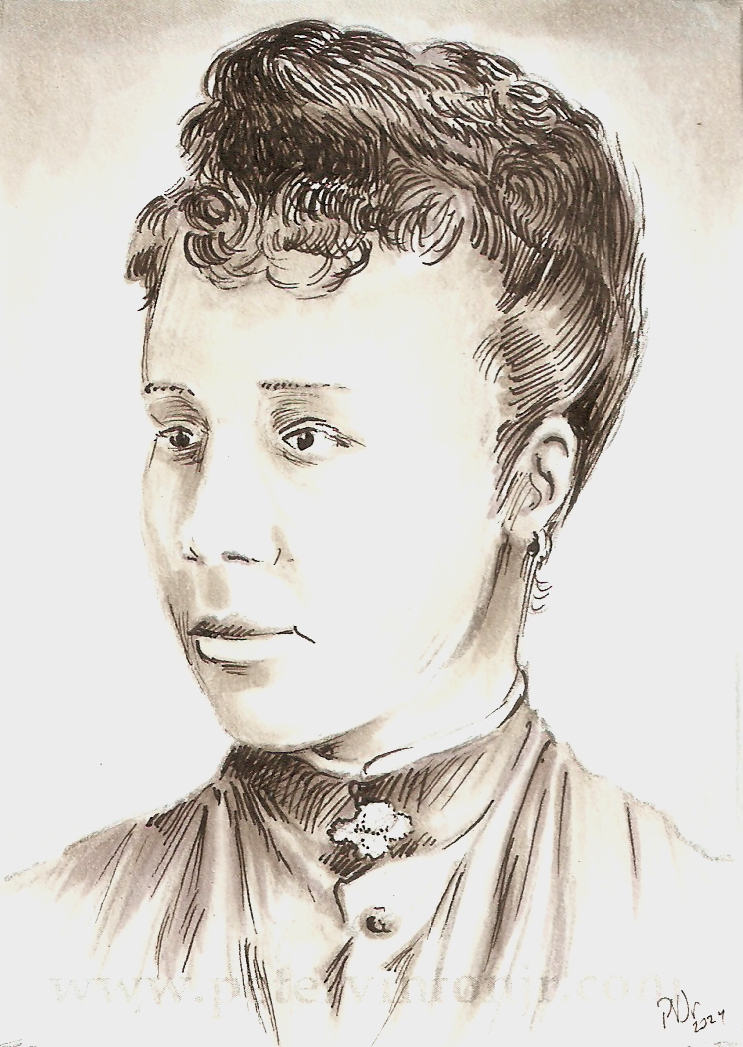
An ongoing illustrative history study
This piece originally posted 5/15/2024
Prelude | 145 | 146 | 147 | 148 | 149 | 150 | 151 | 152 | 153 | Email |
|---|
"A nation's greatness is not dependent upon the things it makes and uses. Things without thoughts are mere vulgarities. America can boast her expanse of territory, her gilded domes, her paving stones of silver dollars; but the question of deepest moment in this nation today is its span of the circle of brotherhood, the moral stature of its men and its women, the elevation at which it receives its vision into the firmament of eternal truth."
Born enslaved in 1858 North Carolina to an enslaved mother and her owner, Anna Julia (neé Haywood) Cooper found herself in a post-emancipation world at the age of nine and enrolled St. Augustine's Normal School and Collegiate Institute in Raleigh; originally a teaching school for newly liberated Black citizens. Anna showed an uncanny aptitude for academics, earning money as a tutor and determinedly pursuing subjects normally regarded as off-limits to women.
In 1877 Anna married theology teacher George A.G. Cooper, but sadly the marriage only lasted a few short years --George died in 1879. In 1881 she enrolled at Oberlin College, where she attained her B.A. in mathematics, and eventually her M.A. in education. Afterwards in 1887 she moved to Washington, D.C. and further pursued education, moving in the same orbits as Mary Church Terrell (Lesson #29) and Nannie Helen Burroughs (Lesson #138). In 1892 she was one of the co-founders of the the Colored Women's League of Washington. She eventually became principal of the Washington Colored High School (later the M Street High School, and eventually Dunbar High School), but not without controversy --her unapologetic approach to college preparation was met with disagreement by the all-white Washington, D.C. school board, and she was ultimately forced to resign in 1906. (Boy, it sure is good to know that sort of thing doesn't ever happen anymore...)
She had been pursuing a graduate study at Columbia in 1911, but stepped away from this goal to raise her late brother's five grandchildren. In 1925, at the age of 66, Anna earned her Ph.D in history from the Universite de Paris (Sorbonne); the fourth Black woman in the U.S. to receive a doctoral degree. She was also a member of the influential Black women's sorority, Alpha Kappa Alpha. Among her many publications was 1892's A Voice from the South, an early examination on the crucial intersectionality of race and gender, that also called for equal education for women. Anna also founded the the first YWCA chapter for Black women.
Retiring from teaching in 1930, Anna continued to publish and advocate for Black civil rights causes. She ultimately lived to the amazing age of 105, passing away in 1964.
Recommended reading: The Portable Anna Julia Cooper, edited by Shirley Moody-Turner
Further recommended study: An Educational Controversy: Anna Julia Cooper's Vision of Resolution by Frances Richardson Keller. [NWSA Journal Vol. 11, No. 3, Appalachia and the South: Place, Gender, Pedagogy (Autumn, 1999), pp. 49-67 (19 pages)]
Next page - Lesson 150: Selma Hortense Burke